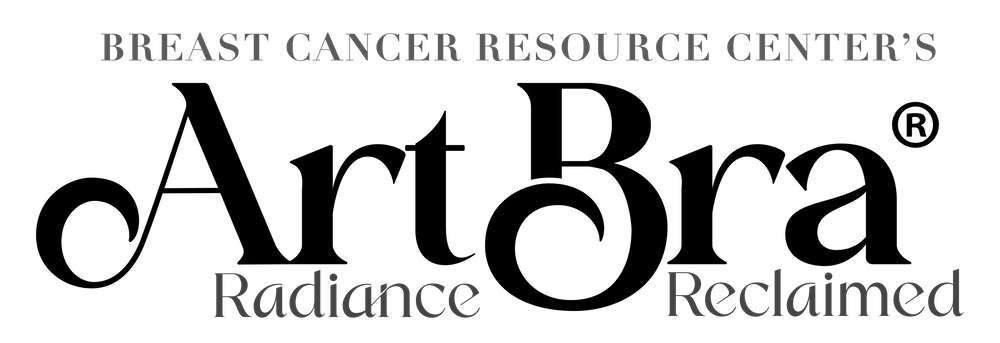Even in the best of times, relationships can be challenging. Coordinating schedules, expectations, and needs is a balancing act. However, when we receive a cancer diagnosis, our lives can be turned upside down. We can feel betrayed by our bodies. At first, it may even feel as if we have jumped into an ocean of swirling emotions with crashing waves that sometimes makes us feel as though we are drowning.
After receiving the diagnosis, we hear all sorts of information about treatments, resources, and numbers. However, there seems to be less information out there about how cancer effects relationships.
For some, the diagnosis can improve their relationship, as it clears away the noise of things that are no longer important. Couples might begin to refocus on the most important thing — each other. Petty disagreements can melt away when things like arguments about house chores seem so unimportant next to loving someone who is fighting for their life.
For others, a cancer diagnosis can be the chink in the armor that begins to crack open the fissures on the surface to reveal a hidden volcano of issues below. And for many the added burden of worries from finances to an unpredictable future can accumulate and weigh down even the strongest of relationships.
However, there is hope. When we can recognize the signs of a problem, and are willing to ask for help, we can take even the most tragic of circumstances and use it to enrich our lives and of those around us.
4 Warning Signs and their Antidotes
John Gottman, one of the world’s leading experts on relationships, studied couples for over 40 years to identify four warning signs of a potential relationship break-up he calls, “The 4 Horsemen of the Apocalypse.” These warning signs are not truly as doom-and-gloom as the title alludes, as long as we recognize them as warning signs that require action to prevent further relationship erosion.
The 4 Warning Signs are: Criticism, Contempt, Defensiveness, and Stone Walling. With these warning signs, Dr. Gottman also gives 4 antidotes.
1) Criticism — verbally attacking personality or character. Especially when one is undergoing chemo (clients commonly refer to it as “chemo brain”), stress is high and tolerance is low. Someone with “chemo brain” might find themselves saying things that they might not ordinarily. One woman I know felt relieved because she found an article that reassured her that not having a filter was common. When you feel physically unwell and emotionally stressed, it creates a perfect storm for criticizing self and others. The Antidote? Gentle Start-Up—Talk about your feelings using “I” statements and express a positive need.
In Gentle Start-Up, we are taking a moment to be fair and filter through our immediate reactions and thoughts to realize that we are all human beings that deserve respect. We can share how we feel without criticizing a person’s character. An example might be, instead of saying to your partner, “You’re a jerk. You never think about what I need.” You might say instead, “I am feeling disconnected from you, I wonder if I am not expressing myself in a helpful way. Help me to understand what you need so that we both can have our needs met.” If you see yourself using “you” statements, there is a good chance that you are coming from a place of judgement or can be seen as critical.
2) Contempt —attacking sense of self with an intent to insult or abuse. A large part of the way that people express contempt is nonverbally. About 85-93% of what we communicate to people is nonverbal. You can say the same word repetitively and with different gestures and inflections, and that word will take on a host of different meanings. The Antidote? Build a Culture of Appreciation — remind yourself of your partner’s positive qualities and find gratitude for positive actions.
When you Build a Culture of Appreciation, it is important to be aware of your inner dialogue of what you are saying to yourself about your partner or even what you might be saying to yourself about yourself. Are you saying to yourself, “He/she is a selfish person and does not care about anyone but themselves?” Or are you saying to yourself, “This person is usually a very caring person. They must really be distracted, and cannot see what I need.” One thought is a building block toward building a bridge to a better relationship, and the other one is the wrecking ball. You have to decide what you want. Saying gratitude to yourself will show in your face and other ways that you behave.
Something that I will also add to the antidote of building a culture of appreciation is the art of reflective listening and kind feedback. When we are with someone for a significant time, we often assume what the other one is thinking and feeling, without checking if we are accurate. Instead of assuming what someone is feeling or thinking, truly listen to what they are saying, and how they are saying their message. Then reflect back to them what you think that they said to see if you do understand or if they communicated their message in the way that they really wanted. For instance, “I heard you say that you were not upset, but your face was grimaced like you were not happy. Is that accurate?” Perhaps the person was grimacing in pain from their cancer, or maybe it was a different thought that went through their head. The only way to know is to ask.
3) Defensiveness — victimizing yourself to ward off a perceived attack and reverse blame. Jack Hyles said, “The ones who disappoint you, NEED YOU the most.”
Having a cancer diagnosis is more than disappointing for those with the diagnosis. It can be devastating for us, but it can also be devastating for those who love us. Sometimes old issues can come up when you least expect it. Often when people blame others, it is because they feel vulnerable or that their egos are not strong enough to think that they are less than perfect. The Antidote? Take Responsibility —accept your partner’s perspective and offer an apology for any wrong doing.
When you Take Responsibility, you are not taking on all of the blame or saying something is your fault. Instead you are saying that this part is something that I take responsibility for and that I have choices about what action that I want to take. One time after coming home from a surgery, and still in a drug-induced haze from pain medication, I had a family member want to talk about things that they had done in the past. Admittedly, my first reaction was irritated and incredulous, thinking “Are you kidding me? You want to talk about this now?” But I took a deep breath, and was able to shift my thinking. I realized that this person must really be scared and intimidated that they needed to have this conversation with me when I am in a vulnerable state. When I took responsibility and shifted my thinking, my emotions calmed, and my body was more relaxed. I was able to have a productive conversation that provided an atmosphere of respect for us both.
4) Stonewalling —withdrawing to avoid conflict and convey disapproval, distance, and separation. Stonewalling is really about creating a wall, not a boundary. Like a castle wall, it says, “I’m safe inside by keeping you outside.” Overtime, it can increase distance and allows for bonds to weaken. Sometimes it starts off as a few hours, and can increase to much longer times. I’ve known of couples who barely talked for months and sometimes years. When bonds weaken with your partner, it allows for room for bonds to strengthen to other people. The Antidote? Physiological Self-Soothing — Take a break and spend that time doing something soothing and distracting.
Doing Physiological Self-Soothing, does not mean that you ignore your partner all night. When you do this technique, you are telling your partner that you need to take a break to bring down the temperature, so that your feelings can settle out, and then you can come back to work on the issue. It is important that you communicate with your partner of how long that you need the break such as, “I need a break for an hour.” This allows your partner to say “Ok” or negotiate with you if there is a pressing matter. For example, “It is 4pm and you were planning on picking up our child at school. How about when I get home at 6pm, I will take over and give you a break if you still need it?” Calling for a break and saying how long that you need it allows for the other person to know that you will be back to work on things, and will help to answer the question who initiates the conversation again. The person who asks for the break is the one to start the conversation again at the agreed upon time. If that person is still not ready to talk, it is better that they come back to ask for additional time than for them talk when they are not clear-headed.
Be aware that about 69% of what couples argue about is not resolvable. Sometimes what you are resolving isn’t the issue but the feelings. For example, if a couple argues about the toothpaste cover being left off of the tube, they may or may not change their behavior about what happens, but might come to a better understanding or a greater acceptance that it happens. Perhaps one person feels that the issue is about disrespect about the environment and themselves, and the other feels that it is a control issue. It is possible that both are true or that neither are true. Things can seem opposite but both be accurate from your point-of-view.
Relationships are Gardens — our relationships grow best when they are tended to, nurtured, and receive the right amount of caring. In order to be a master gardener, you must first take care of your own garden and then share a garden with those you love for you to tend together. If you find your garden withering and nothing seems to help it, find another gardener to ask for tips. Sometimes it takes someone from a different perspective to see what you do not see. And if you don’t like the advice from that other gardener find another that you can trust.
If you see yourself doing any of the warning signs listed above, don’t despair. John Gottman will be the first to say, those that are masters at relationships make mistakes. The difference is that they know how to repair the mistakes and that they do it quickly. Be a master gardener in your life.

Janet Tuohy is a Licensed Clinical Social Worker and Board approved Supervisor who has been in the mental health field for more than 30 years. Some of her specialties include helping others recover and cope with trauma, depression, anxiety, spirituality, sexuality issues, relationship issues, and parenting.
If you or someone you know is facing breast cancer and could use our support, please visit our website or call our helpline at 512-524-2560.
Consider making a donation to BCRC and give the gift that makes a real difference for the women in Central Texas facing breast cancer right NOW. Visit bcrc.org to learn more about how we can help, or click here if you wish to give back today.


